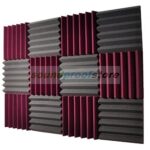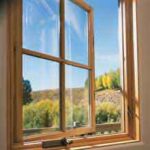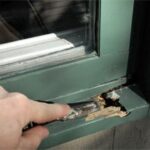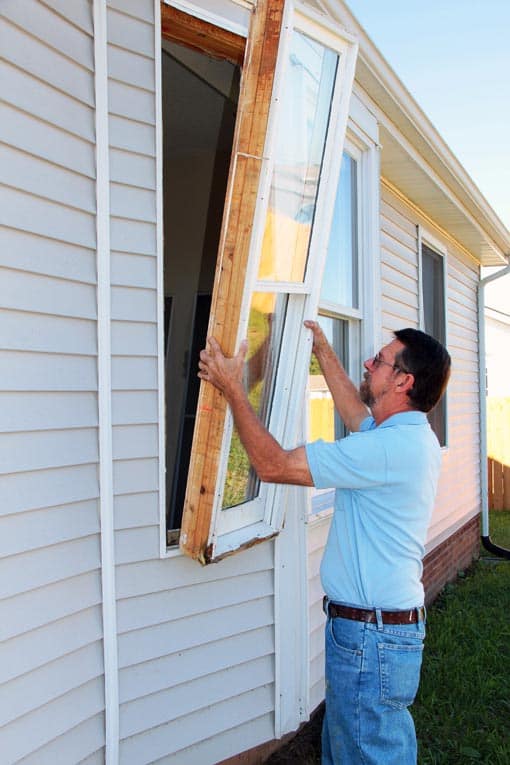Tired of noisy neighbors or traffic? Discover practical ways to soundproof your windows and reclaim the peace and quiet of your home.
Windows are meant to be portals to the world outside, letting in light and fresh air. However, they can also become unwanted conduits for noise, disrupting the peace and quiet of your home. The rumble of traffic, the neighbor’s lawnmower, or even distant sirens can easily penetrate through standard windows, affecting your comfort and well-being.
But don’t despair! You have the power to reclaim your tranquility by soundproofing your windows. Whether you’re dealing with minor noise disturbances or living in a particularly noisy environment, there are effective solutions to block out unwanted sounds and create a peaceful haven within your walls.
Soundproof Window Inserts: A High-Performance Upgrade
If you live near a busy street, airport, or just have particularly noisy neighbors, consider soundproof window inserts. These custom-made inserts fit snugly inside your existing windows, creating a significant air gap that dramatically reduces noise transmission. With STC ratings of 38 to 42 or higher, they offer a substantial improvement over standard double-glazed windows. (See What Is An STC Rating? )
- Pros: Highly effective noise reduction, more affordable than replacing entire windows, available in various operable styles.
- Cons: Can be a DIY project but professional installation is recommended for best results, reduces some natural light.
Soundproof window inserts are custom-made to fit and be installed inside many types of existing windows.
When installed, these windows leave a hefty space of about 4 inches between the existing window and the insert. As a result, they achieve very high STC ratings of 38 to 42.
They are made in a variety of operable styles by companies such as CitiQuiet, Indow Windows, and Citiproof Soundproof Windows. Certain brands are sold through major home improvement retailers.
Here is a video from Acoustical Surfaces, Inc. that shows how Climate Seal window inserts work:
Soundproof Windows: The Ultimate Solution
For maximum noise reduction, replacing standard windows with insulated glass or specialized soundproof windows is the most effective solution. Soundproof windows are engineered with thicker glass, wider air gaps, and superior framing to block out even the most persistent sounds. Of course, this is a major home improvement—and will be very costly. But you may be able to get maximum benefit from the strategy if your home has just a couple of windows that face the source of most noise like traffic or heavy equipment.
- Pros: Unrivaled noise reduction, improves energy efficiency, enhances overall comfort.
- Cons: Significant investment, professional installation required. Get three or more bids from window installation pros.
Because conventional single-pane windows do very little to block noise, they are a significant target when it comes to soundproofing to shut-out exterior noise. A single-pane window has an STC rating of 18 to 27.
A dual-glazed (or “double-glazed”) window has an STC rating of 28 to 32. Dual glazing may be a significant energy improvement for your home, but as a soundproofing improvement, the change is only slightly audible. You need to move up to a higher performer to significantly block noise.
Laminated dual glazing steps up the STC to about 35, but this difference over basic dual glazing doesn’t justify the additional high cost of laminated glass. The same is true of triple glazing.
A better choice is choose double glazing that has two different thicknesses of glass. These windows do a better job of filtering out various frequencies of noise and will deliver an STC rating of about 34.
Most major window manufacturers offer special soundproofing windows, so check around. And be sure to get multiple bids if you’re thinking seriously about this type of major investment.
Soundproofing Panels and Acoustic Curtains
For a budget-friendly option, soundproofing panels or acoustic curtains can help absorb and dampen noise within a room. While they won’t completely block out exterior sounds, they can significantly reduce echoes and soften the impact of noise pollution.
- Pros: Affordable and easy to install, adds a decorative element to your room, available in various colors and styles.
- Cons: Less effective at blocking exterior noise compared to inserts or specialized windows.
You can buy sound-blocking curtains on Amazon for under $40. But keep your expectations low—they are not going to do an exceptional job of keeping out the noise.
Acoustic curtains will be most effective if you choose sizes that will reach from ceiling to floor. At the very least, they should extend a few inches beyond the perimeter of a window.
This video shows how one brand of soundproofing panels is easy for a do-it-yourselfer to buy and install.

Seal the Gaps: Caulk and Weatherstrip
Air gaps around windows are a common culprit for noise infiltration. Sealing these gaps with acoustical sealant and weatherstripping is a simple yet effective way to reduce noise transmission.
- Pros: Inexpensive and easy DIY project, can also improve energy efficiency.
- Cons: Only effective for minor noise issues, may need to be reapplied periodically.
For more, see How to Weather Strip Doors and Windows.
In Conclusion…
- Identify the Noise Source: Understanding the type and source of the noise will help you choose the most appropriate soundproofing method.
- Consider Your Budget: Soundproofing options range from affordable DIY solutions to more significant investments.
- Consult a Professional: For complex installations or severe noise problems, seek advice from a soundproofing expert.
With a little effort and the right approach, you can create a peaceful and comfortable living environment, even in the midst of a noisy world.
Find a local soundproofing pro on ANGI.




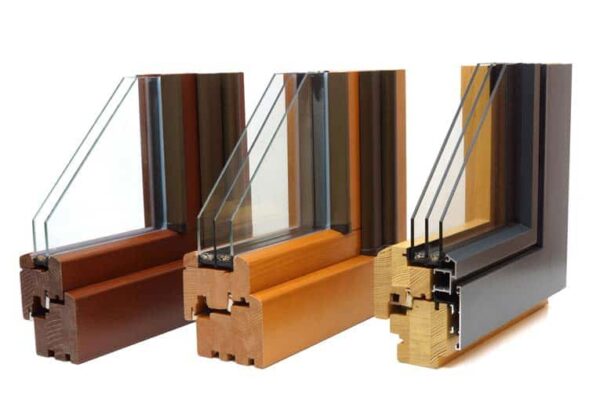
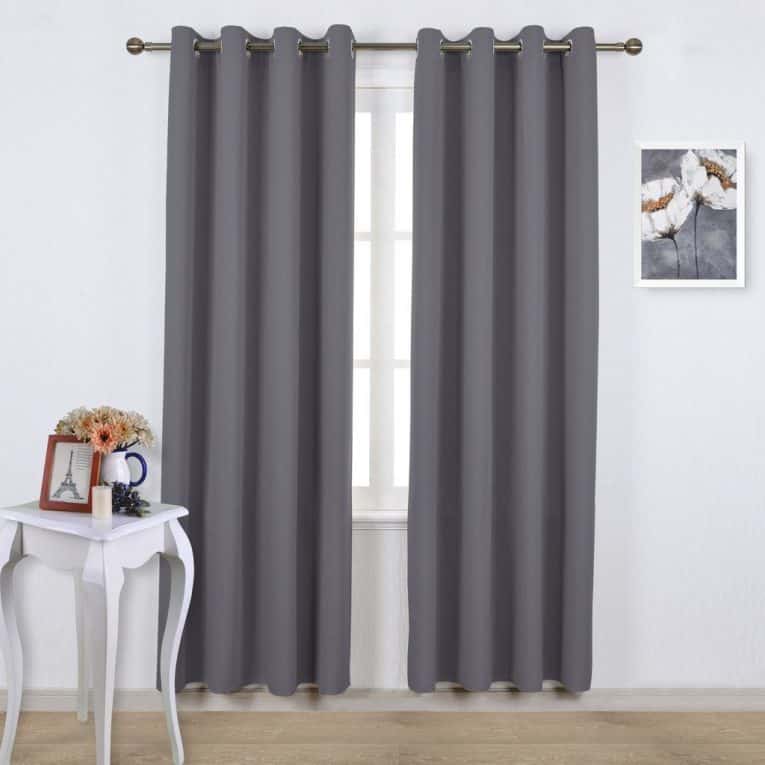
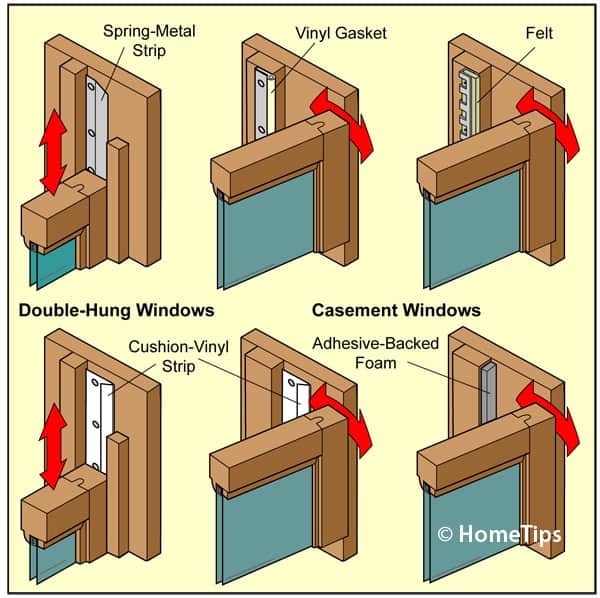




 Don Vandervort writes or edits every article at HomeTips. Don has:
Don Vandervort writes or edits every article at HomeTips. Don has:
